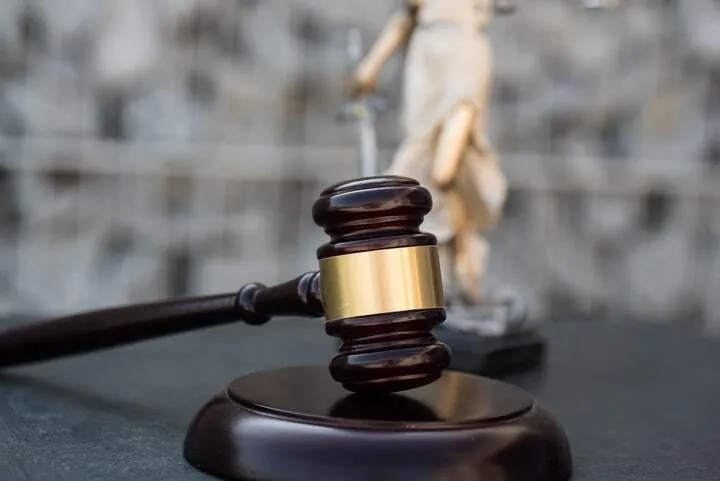
Under federal whistleblower law, a protected disclosure is a report of wrongdoing or misconduct made by an employee or contractor of the federal government.
The disclosure must be made in good faith. In addition, it must concern several specific types of allegations, such as a violation of a law, rule, regulation, or other legal requirement.
You’re probably reading this article because you’re considering blowing the whistle on your employer.
You may very well feel overwhelmed, scared, or anxious. But the good news is that federal law provides protections for whistleblowers.
More than that, you don’t have to fight this battle alone. Contact a qualified federal employment attorney for assistance today.
First Things First: What Protection Is There for Whistleblowers?
Two legislative cornerstones work together to protect whistleblowers. The first is the Whistleblower Protection Act (WPA), and the second is the Whistleblower Protection Enhancement Act (WPEA).
The WPA
Congress originally passed the WPA in 1978, but it has been updated several times. The WPA specifically protects federal employees who make protected disclosures about government misconduct.
It also prohibits retaliation against employees who disclose things like waste, fraud, abuse of authority, or violations of law, rules, or regulations.
Finally, the WPA furnishes a process for whistleblowers to file complaints to the Office of Special Counsel (OSC) and seek remedies for retaliation.
Thanks to the WPA, federal employers can’t take adverse personnel actions against an employee who makes a protected disclosure. And what are adverse personnel actions?
They include, but are not limited to:
- Terminations,
- Demotions,
- Suspension, and
- Reassignment to a different job.
If an employee experiences retaliation, they can file a complaint with the OSC within 45 days of the adverse action.
The OSC will then investigate the complaint. If it finds evidence of retaliation, it can take corrective action, including reinstatement, back pay, and attorneys’ fees.
The WPEA
In 2012, Congress passed the Whistleblower Protection Enhancement Act (WPEA), which strengthened the legal protections for federal whistleblowers.
The WPEA clarified and expanded the definition of a protected disclosure, making it easier for employees to qualify for whistleblower protections.
The WPEA also expanded the WPA’s scope to cover more employees. Newly covered personnel included Transportation Security Administration employees and intelligence community employees. Even government contractors received coverage under the WPEA.
The WPEA provides several key additional protections for whistleblowers. For one, it adds a mechanism for whistleblowers who experience retaliation to get temporary relief.
The WPEA also empowers a whistleblower to request a stay of an adverse personnel action while their complaint is pending.
If the OSC determines that the employee has a substantial likelihood of success on the merits, it can request they receive reinstatement while their complaint is pending.
So What Is a Protected Disclosure in a Federal Whistleblower Case?
Now that you know more about key whistleblower legal protections, let’s dive into the issue we mentioned at the beginning of this article.
A protected disclosure is a release of information by a federal employee that demonstrates evidence of:
- A violation of law, rule, or regulation;
- Gross mismanagement;
- Gross waste of funds;
- Abuse of authority; or
- A specific danger to public health and safety.
Those categories provide sweeping protections to all kinds of statements. Protected statements can be made to a supervisor, the Inspector General, or even Congress.
However, many disclosures still fall outside the definition of “protected disclosures.”
For instance, a personal grievance or report of general workplace dissatisfaction probably won’t count as a protected disclosure. Nor will a general complaint unrelated to any illegal activity or safety concerns.
Three Examples of Protected Disclosures
To help drive the point home, let’s imagine three potential real-world scenarios involving protected disclosures.
Example #1
Jane is a federal employee working for the Department of Agriculture. One day, she discovers her supervisor has been illegally selling government-owned land to a private company for personal gain.
Jane reports this misconduct to her agency’s Office of Inspector General. This would count as a protected disclosure under the WPA.
Example #2:
John is an applicant for a position with the Environmental Protection Agency (EPA).
After his interview, he stumbles upon evidence that a high-ranking official in the agency has been tampering with data to downplay the impact of a hazardous chemical on public health.
John decides to share this information, a protected disclosure, with the agency’s Office of Special Counsel.
Example #3:
Sarah works for the Department of Defense. She has been assigned to a project that she believes poses a serious risk to national security.
She brings it up to her supervisor first, but he orders her to stay quiet. As a union member, she decides to contact a union steward and file a grievance to disclose the information.
You Don’t Have to Fight Wrongdoing on Your Own. Let Us Help.
Legal assistance is crucial if you are considering making a protected disclosure. It’s even more critical if you think you are facing whistleblower retaliation.
Many wrongdoers in the government resort to intimidation and threats to protect themselves. And often, whistleblower complaint procedures become complicated quickly.
Don’t go it alone. Trust our team at the Federal Employment Law Firm of Aaron D. Wersing, PLLC. Our attorneys have extensive experience handling whistleblower complaints before the OSC.
When you consult with us, we will listen to your story and apply the law to your situation. Then we will inform you of your legal options and potential next steps.
Let’s collaborate to safeguard your rights and secure your fair compensation. Time is of the essence, so don’t wait another moment. Call us today at 866-612-5956 or contact us online.

